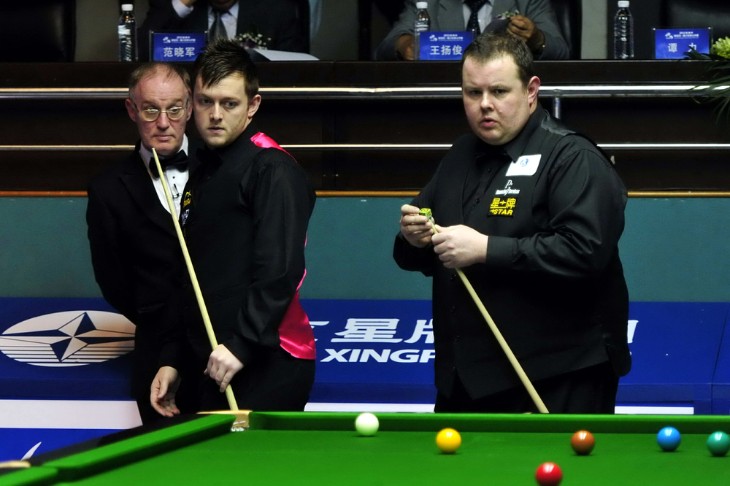Introducing the world of snooker championships reveals a rich history marked by strategic excellence, compelling stories, and a worldwide fan base. This cue sport, with its British roots, has grown into a prestigious and globally acclaimed competitive event, tracing its path from modest origins to becoming a significant fixture in professional sports. By exploring its historical development, current status, and promising future, we discover a narrative that blends tradition with innovation, inviting enthusiasts into a realm defined by precision, expertise, and timeless appeal.
Historical Overview of Snooker Championships
Origins and Early Development
Snooker emerged in the latter part of the 19th century, originating among British Army officers stationed in India. The game evolved from variations of billiards, incorporating coloured balls and different scoring mechanisms. Initially termed "indoor billiards," the game gained popularity within the British Empire before making its way to the United Kingdom.
Rise to Professional Sport
Snooker's ascent to becoming a professional sport commenced in the early 20th century. The first official snooker championship, the World Championship, was organized in 1927 by Joe Davis, a dominant figure in the game's early years. His skill and influence helped solidify snooker's status as a competitive sport, attracting a growing audience.
Evolution of Rules and Formats
The rules and formats of snooker underwent several transformations over the decades. Changes in ball composition, table sizes, and scoring systems marked different eras of the sport. Notably, the introduction of colour television in the 1960s propelled the game's popularity, amplifying its visual appeal and accessibility to audiences worldwide.
Growth and Global Expansion
The 1970s and 1980s marked a period of significant growth for snooker championships. Television coverage, sponsorships, and the emergence of charismatic players like Steve Davis and Alex Higgins elevated the sport's profile, capturing audiences beyond its traditional British base. The World Snooker Association's efforts played a pivotal role in expanding the game's reach internationally.
Impact of Legends and Iconic Moments
Legendary players such as Steve Davis, Stephen Hendry, Ronnie O'Sullivan, and others have left an indelible mark on snooker championships. Their remarkable skills, rivalries, and unforgettable matches have shaped the narrative of the sport, contributing to its enduring appeal and cultural significance.
Legacy and Influence
The historical journey of snooker championships from its humble origins to a globally recognized sport has left an enduring legacy. Its fusion of precision, strategy, and entertainment continues to captivate audiences across generations, solidifying its place among the most prestigious and respected sporting events worldwide.
Iconic Moments from Past Snooker Championships
Early Championships and Pioneering Players
The inaugural World Snooker Championship in 1927 marked the beginning of a storied legacy. Joe Davis, the winner of the first championship and a dominant force in the game, set a standard for excellence that reverberated through subsequent decades. Davis's mastery and strategic approach not only secured his place in snooker history but also laid the groundwork for future champions.
The Crucible Era and Intense Rivalries
The move of the World Championship to the Crucible Theatre in Sheffield in 1977 heralded a new era for snooker. This iconic venue became synonymous with the championship and witnessed some of the most thrilling and historic matches in the sport's history. The 1980s, dubbed the "golden era," witnessed intense rivalries between players like Steve Davis, Alex Higgins, and Jimmy White, captivating audiences with their contrasting styles and fierce competition.
Hendry's Dominance and O'Sullivan's Flair
Stephen Hendry's dominance throughout the 1990s remains a highlight of snooker's history. His record-breaking seven consecutive world titles showcased his unparalleled skill and mental fortitude, cementing his status as one of the greatest players in the sport. Concurrently, Ronnie O'Sullivan emerged as a maverick, captivating fans with his extraordinary talent and unorthodox approach to the game, earning him the moniker "The Rocket."
![]()
Unforgettable Matches and Record-Breaking Feats
Snooker championships have witnessed numerous matches etched into the sport's lore. From Cliff Thorburn's iconic maximum break in 1983—the first televised 147 break in World Championship history—to the dramatic finals and nail-biting deciders that kept audiences on the edge of their seats, these moments encapsulate the drama and tension inherent in elite-level snooker.
Impact on the Sport's Evolution
The legacy of past snooker championships extends beyond the trophies and accolades. These championships and the players who graced them shaped the evolution of the sport. Their styles, strategies, and mental fortitude set benchmarks for future generations, inspiring aspiring players and contributing to the continual growth and popularity of snooker globally.
Current Landscape of Snooker Championships
Major Tournaments and Formats
The present state of snooker championships is characterized by a diverse array of major tournaments held worldwide. The World Snooker Championship, hosted at the iconic Crucible Theatre in Sheffield, remains the pinnacle event, attracting top players from across the globe. Additionally, tournaments like the UK Championship, the Masters, and various ranking events contribute to the rich tapestry of professional snooker.
Global Reach and Audience Engagement
Snooker's popularity has transcended borders, garnering a global following. The sport's accessibility through televised broadcasts, live streaming, and digital platforms has amplified its reach, captivating audiences in diverse regions. The strategic partnership between the World Snooker Tour and different broadcasters has been instrumental in bringing the excitement of championships to fans worldwide.
Players and Competitive Landscape
The current era boasts a roster of exceptionally talented players showcasing their skills on the professional circuit. Names like Judd Trump, Neil Robertson, Mark Selby, and Kyren Wilson headline a competitive field, each bringing a unique style and approach to the game. The fierce competition among these top-tier players has elevated the quality of play and added an extra layer of excitement to tournaments.
Evolution of Tournament Structures and Technology
Innovations in tournament structures and the integration of technology have enriched the spectator experience. Enhanced camera angles, high-definition broadcasts, and statistical analysis provide viewers with immersive and insightful coverage. Moreover, the adaptation of shot clocks and the introduction of new formats in some tournaments aim to inject dynamism into the game while maintaining its essence.
Prize Money and Sponsorship
The financial aspect of snooker championships has seen significant growth, with substantial prize pools attracting top talent to compete in these events. Sponsorship deals and partnerships with corporate entities have bolstered the financial viability of tournaments, allowing for larger prize funds and better infrastructure, thereby ensuring the continued growth and sustainability of the sport.
The Future of Snooker Championships
Technological Advancements and Innovation
The future of snooker championships is poised for a technological revolution. Augmented reality, virtual reality, and enhanced data analytics could offer spectators an immersive experience, providing detailed insights into players' strategies and shot selections. Innovations in equipment and table technology might further refine the playing experience, ensuring fairness and precision in the game.
Global Expansion and Diversification
Anticipated expansions into new markets and regions could fuel the growth of snooker championships. Initiatives to promote the sport in emerging markets like Asia and Africa may lead to a surge in participation and a broader talent pool. This expansion could also pave the way for the creation of new tournaments and circuits, diversifying the competitive landscape.
Format Adaptations and Fan Engagement
To appeal to a broader audience and adapt to evolving preferences, snooker championships might experiment with different formats and tournament structures. Shorter, faster-paced formats could complement traditional events, catering to varied viewer demographics and enhancing engagement. Interactive fan experiences through social media integration and virtual participation may also become integral to the championship experience.
Sustainability and Eco-Friendly Initiatives
With a growing emphasis on environmental sustainability, snooker championships might adopt eco-friendly practices. Measures such as reducing carbon footprints associated with events, implementing green technologies in venue operations, and promoting sustainability initiatives could align the sport with global environmental efforts, garnering support from environmentally conscious audiences.
Youth Development and Grassroots Programs
Investment in youth development programs and grassroots initiatives will likely be crucial in securing the future of snooker. Encouraging participation at a young age, providing accessible training facilities, and fostering talent through structured programs could unearth a new generation of players, ensuring the sport's longevity and continuity.
Global Reach and Impact of Snooker Championships
Cultural Significance and Regional Appeal
Snooker championships have transcended cultural boundaries to become a global sporting phenomenon. While deeply rooted in its British origins, the sport has found resonance in various cultures worldwide. Its blend of skill, strategy, and drama has captivated audiences across continents, earning it a dedicated fanbase with diverse demographic profiles.
Popularity in Different Regions
The sport's popularity varies across regions, with pockets of fervent fanbases in different parts of the world. Traditionally strongholds like the United Kingdom continue to embrace snooker fervently, while countries in Asia, particularly China, have seen a meteoric rise in interest. China, with its enthusiastic audience and burgeoning talent pool, has played a pivotal role in expanding the global footprint of snooker championships.
Television Coverage and Digital Accessibility
Television coverage has been instrumental in propelling the sport's global influence. Broadcasting networks reaching far-flung corners of the world have facilitated the sport's accessibility, making championships easily accessible to millions of viewers. Moreover, the advent of digital platforms and streaming services has further amplified the reach, enabling fans to follow tournaments in real time regardless of geographical constraints.
Influence on Cue Sports and Sporting Culture
Snooker championships have had a ripple effect on cue sports, influencing the broader sporting landscape. The strategic intricacies, mental acumen, and precision demanded by the game have garnered admiration from enthusiasts and professionals in related disciplines. Snooker's impact extends beyond the confines of cue sports, contributing to the broader sporting culture by exemplifying the values of dedication, skill, and sportsmanship.
Community and Social Impact
The sport's influence extends beyond the realm of competitive play, fostering a sense of community among fans and participants. Local clubs, amateur leagues, and recreational players contribute to the sport's grassroots movement, creating a vibrant community that celebrates its shared passion for snooker. Moreover, charitable initiatives and events associated with championships often leverage the sport's popularity to support various social causes, further enhancing its positive impact.

Challenges and Opportunities
Competition from Alternative Sports and Entertainment
One of the significant challenges for snooker championships lies in the competitive landscape of sports and entertainment. The sport faces competition from various other leisure activities, including esports, emerging sports, and a diverse range of entertainment options available to audiences. Maintaining relevance and capturing the attention of a younger demographic amid this diverse array of choices poses a continual challenge.
Market Saturation and Audience Engagement
In regions where snooker has an established presence, maintaining and expanding the existing fanbase is crucial. Market saturation in some areas could lead to stagnation or declining interest if not addressed strategically. Ensuring sustained engagement and finding innovative ways to captivate audiences, especially in established markets, remains a persistent challenge for the sport.
Financial Sustainability and Sponsorship
While snooker championships have seen growth in prize funds and financial backing, sustaining this growth amidst economic fluctuations and evolving sponsorship landscapes is a challenge. Dependence on sponsorships and broadcast rights makes the sport vulnerable to market dynamics. Ensuring a stable revenue stream and attracting long-term partners while navigating the intricacies of the sponsorship market remains a challenge for organizers.
Global Expansion and New Markets
An opportunity lies in the sport's potential for global expansion, particularly in untapped markets. Initiatives to introduce and popularize snooker in regions with burgeoning interest, such as Asia, Africa, and South America, present opportunities for growth. Strategic partnerships, grassroots development programs, and targeted marketing efforts could facilitate the sport's penetration into new markets.
Innovation and Technological Integration
The integration of technology offers avenues for enhancing the spectator experience and engaging a wider audience. Embracing innovative broadcasting techniques, interactive fan experiences, and leveraging digital platforms could attract new demographics and enhance the sport's appeal. Additionally, exploring advancements in equipment technology and venue infrastructure could further elevate the quality and accessibility of the game.
Youth Engagement and Development
Investing in youth engagement programs and nurturing talent from a young age presents an opportunity to secure the sport's future. Initiatives that promote snooker in schools, create accessible training facilities, and establish structured development pathways can attract new generations of players, fostering sustained interest and participation in the sport.
Sustainability and Social Responsibility
The rising global emphasis on sustainability provides an opportunity for snooker championships to align with eco-friendly practices. Implementing sustainable event management strategies, reducing environmental footprints, and championing social causes through sporting events could resonate with environmentally conscious audiences and attract support from corporate entities aligned with these values.
For more information:




.webp)


 (1).webp)




















